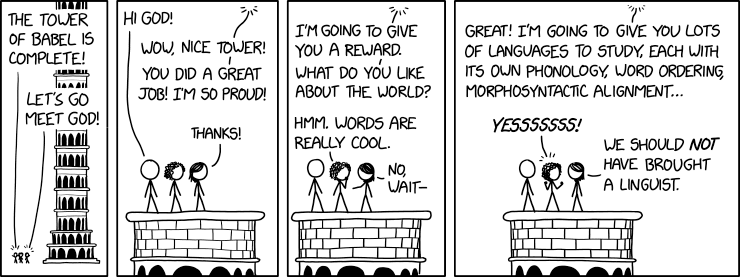Listening to the DM in DDO has its benefits. This way I can learn not only new words, but also learn about pronounciation.
Meanwhile voice chat is always a bit hectic, the DM's voice is always clear and understandable - which I need because of my natural hearing problems.
Now to the hard facts :
I'm kind of surprised that the prefix "un-" actually exists in English language - I only knew it from German language so far. But I never thought about it.
Plus, it even has the same meaning !
"Undead", for example. That fantasy classic.
Interesting is, however, how it is pronounced. and I found that the English language often pronounces things a bit differently than the German language does.
I'll try to mark the pronounciation with an accent.
Gary Gyxax, in DDO's module "The Mystery Of : Delera's Tomb" : "Undéad.
Emphasis lies on the second syllable.
German : "Ùndead".
Emphasis lies on the first syllable.
KOTOR :
English : "Bástila", emphasis on the first syllable.
German, at least that's how I pronounciate it : "Bastíla", with emphasis on the i , because I always thought that her name was related to the French Bastille (maybe even intentionally ?).
https://en.wikipedia.org/wiki/Bastille , note the pronounciation there.
What I at least can say, is, that the pronounciation of words is partly influenced by knowledge of similar words, or no knowledge of similar words. The French word "Bastille" definitively influenced how I pronounce the KOTOR name of Bastila !
Other things.
The word "clutch" is pronounced by the DDO DM like the German word "Klatsch", which means "gossip".
There seems to be a ... disparity ? ... on how the "sch" is pronounced in the English language.
Usually, it sounds to me like "scool", "sceme". Which might surprose young English-learning kids (like me sooooooo long ago ...), that the "sch" is NOT pronounced like the "sh" !
This is surprising, because the English "sh" and the German "sch" sound the same !
Which, on the other hand, makes me flabbergastered wghen I see German Fantasy settings use the "sh" instead of the German "sh". I think I saw that in Myranor, the sister setting to TDE. I never actually understood that reasoning, which was, if I recall that correctly, "that both are [essentially] the same". They use THAT as a reason to use the "sh" in a German setting, which made me feel flabbergastered. I mean, they very clearly could have used the German "sch" instead, which would have been more understandable, and could have translated that later as "sh" into the English languiage ... But Myranor was, as far as I can remember, never translated into English language !
I think .. I have heard the DDO's DM voice once pronounce a word with "sch" as if it had "sh" instead, but I don't remember anymore, whic one that was.
And that's what i meant with "disparity" : Mostly spelled like with "sc" (school), and in a few cases like with an "sh".
If I only could remember which word that was ...


